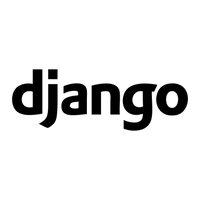Choosing the right e-commerce platform is a critical decision for businesses looking to establish or expand their online presence. Two popular options for creating an online store are Shopify and OpenCart. In this article, we will compare these platforms in terms of ease of use, cost, control, development time, and available features.
Ease of Setting Up an E-commerce Store:
Shopify:
Shopify is renowned for its simplicity. It allows businesses to set up an online store rapidly, often within a few days. It's a "0 code solution", meaning you don't need extensive technical expertise to launch a basic store.
OpenCart:
In contrast, OpenCart demands more technical skills. Setting up an OpenCart store may take longer and requires a web development team.
E-commerce Development Cost Comparison:
Shopify:
Shopify offers the advantage of launching a basic online store relatively quickly and at a relatively low cost. This is especially true if you choose to go with a simple, out-of-the-box setup that doesn't require extensive customizations. The platform's user-friendly interface allows specialists without extensive programming knowledge to create a basic store efficiently. However, it's worth noting that developing a full-fledged, custom Shopify store can be as costly and time-consuming as choosing any other e-commerce framework. Additionally, when it comes to implementing custom functionality, Shopify has some limitations. You cannot easily modify or extend Shopify's standard features. To achieve this, you would need to develop a custom app or use other provider offered public app, which could lead to higher development costs and longer timeframes.
OpenCart:
OpenCart takes a different approach. It doesn't allow for the quick and inexpensive launch of a store, as it primarily involves development work. Even setting up a basic online store with OpenCart can take several weeks or even months, unlike the rapid deployment possible with Shopify. However, where OpenCart shines is in the development of stores with a wide range of functionalities. Thanks to the platform's open-source nature, working with the source code allows for more rapid development of custom features and extensions. This can make OpenCart a more suitable choice for businesses looking to create a highly customized e-commerce solution with a wide range of features.
Cost Structure for Launching an Online Store:
Shopify:
Shopify is a Software-as-a-Service (SaaS) platform, which means you pay a monthly subscription fee. However, this fee covers hosting, saving you the cost and effort of finding and maintaining your servers.
OpenCart:
OpenCart is an open-source platform, which means there are no subscription fees. However, businesses using OpenCart must bear the cost of hosting their website on their own servers, which can add to the expenses.
Payment Processing OpenCart vs Shopify:
Shopify:
In addition to the monthly subscription fee, Shopify charges a percentage of each transaction as part of their payment processing fee. The exact fee varies depending on your selected pricing plan and the payment processor you use. This means that for every sale you make, a portion goes to Shopify on top of any fees imposed by your payment gateway.
OpenCart:
OpenCart operates differently when it comes to payment processing. There are no additional fees based on a percentage of your sales. Instead, you will only incur the standard processing fees imposed by your chosen payment gateway, with no further payments to the platform itself. This cost structure can make OpenCart an appealing choice for businesses looking to minimize transaction-related expenses.
Code Ownership and Control:
Shopify:
One drawback of Shopify is the limited control over the code and the entire system. Businesses are somewhat tied to Shopify's ecosystem and may face restrictions when implementing highly custom features.
OpenCart:
OpenCart offers full control over the code, providing businesses with greater flexibility in tailoring their online store to their specific needs. This means you own and manage your entire codebase.
Development Time for E-commerce Websites OpenCart vs Shopify:
Shopify:
Shopify allows for the quick launch of a basic store, which can be up and running in just a few days. However, extensive customizations, including unique designs and advanced features, may require more time. Developing a full-fledged Shopify store can take at least a month or even longer.
OpenCart:
Creating a store with OpenCart usually takes more time due to the need for extensive customizations. The timeframe varies depending on the complexity and features required, often ranging from 1 to 4 months.
Out-of-the-Box Features OpenCart vs Shopify:
Shopify:
Shopify comes with an array of built-in features, such as analytics, multilingual support, abandoned cart recovery, and promotional code capabilities. These features are readily available for use. Moreover, Shopify has a thriving ecosystem of ready-made applications that provide various functionalities and operate on a subscription model. It's important to note that these applications are also Software-as-a-Service (SaaS) solutions. When a business chooses to rely on these applications, it should be aware that it becomes fully dependent on the app provider. If the app developer decides to discontinue support or service, the store may lose essential functionality. This presents a significant risk, and it is not recommended to implement critical business features solely through applications in this environment. Custom own app development is the way, how business can ensure stable and predictable custom functionality for its store in Shopify ecosystem.
OpenCart:
OpenCart offers a more limited set of features out of the box. Additional functionality may require custom development or the installation of third-party extensions. In OpenCart, additional extensions and pre-built modules are available, which can be either free or paid. However, it's worth noting that these extensions come with a caveat. OpenCart is an open-source solution and cannot guarantee strict quality control over third-party extensions for its platform. This can lead to varying levels of quality and compatibility, and not all extensions may function correctly. In contrast, Shopify has a robust application review system, ensuring a higher quality standard for its apps.
Here's a comparative table based on the provided information:
| Criteria | Shopify | OpenCart |
| Ease of Setup | Renowned for simplicity | Demands technical skills |
| E-commerce Development Cost | Variable, basic store setup cost-effective; custom features may | Longer setup, cost-effective for feature-rich stores; flexibility in development with source code |
| Cost Structure | Monthly subscription fees | Self-hosted with server expenses |
| Payment Processing | Additional transaction percentage fee | Standard processing fees by payment gateway |
| Code Ownership & Control | Limited control, tied to Shopify's ecosystem | Full control, own and manage the codebase |
| Development Time | Quick launch for basic store, longer customization time | Longer setup, extensive customization |
| Out-of-the-Box Features | Abundant built-in | Minimal features; customizations/extensions required |
In summary, the choice between Shopify and OpenCart depends on your business's specific needs and resources. Shopify offers a quick and user-friendly way to launch an online store with a wealth of features, making it ideal for those who want a streamlined experience. OpenCart, on the other hand, offers full code control but comes with the trade-off of requiring more technical expertise and time. It's the go-to choice for businesses looking for extensive customization and full control over their e-commerce platform. Carefully consider your business goals, budget, and technical capabilities when making your decision.








